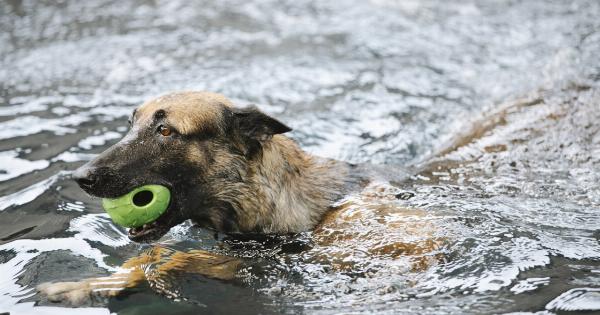The Boxer is a medium-sized breed known for its playful, energetic, and loyal nature. With their irresistible charm and intelligence, Boxers have become a popular choice for families and individuals alike.
In this article, we will explore the various aspects of a Boxer’s temperament, their unique characteristics, and the importance of training and socialization for a well-rounded pet.
Playful Nature
Boxers are notorious for their playful demeanor, often acting like eternal puppies throughout their lives. Their exuberance knows no bounds, and they have an unwavering enthusiasm for playtime.
Whether it’s a game of fetch, tug-of-war, or simply romping around in the backyard, Boxers are always up for a good time. Their playful nature makes them excellent companions for families with children or active individuals seeking a furry friend to keep up with their energy levels.
Energetic Disposition
As a highly active breed, Boxers have energy to spare. They require regular exercise to burn off their excess energy and maintain their physical and mental well-being.
A daily routine that includes brisk walks, jogs, or interactive play sessions will help prevent behavioral issues that may arise from pent-up energy. Boxers thrive in environments where they can engage in activities that challenge their physical abilities, such as agility training or advanced obedience tasks.
Loyal and Protective
One of the Boxer’s most admirable qualities is their unwavering loyalty. They form strong bonds with their family members and are fiercely protective of them.
Boxers have a natural instinct to guard their loved ones, making them excellent guard dogs. Despite their protective instincts, Boxers are known for their gentle nature and are typically good with children if properly socialized. With their loyalty and protective nature combined, Boxers make incredibly devoted family pets.
Socialization and Training
Proper socialization and training are vital for Boxers to become well-adjusted and obedient members of society.
Early socialization exposes them to a variety of people, animals, and environments, teaching them how to appropriately interact with their surroundings. Boxers are intelligent and eager to please, making training them a relatively easy task. However, consistent and positive reinforcement methods should be employed to ensure the best results.
Basic obedience training, such as sit, stay, and recall, should be the foundation of their training regimen.
Health and Care
To keep a Boxer happy and healthy, regular veterinary check-ups and proper care are essential.
Boxers are prone to certain health issues, including hip dysplasia, heart conditions, and certain cancers, so routine examinations and preventive measures should be undertaken. Their short, smooth coats require minimal grooming but benefit from weekly brushing to minimize shedding. Dental hygiene is also crucial, as Boxers are prone to dental problems.
Regular teeth brushing and dental check-ups can help maintain their oral health.
Boxer’s Unique Characteristics
Boxers have several unique characteristics that make them stand out from other breeds. One defining feature is their square-shaped head and muscular build. They have a distinctive underbite, wrinkled forehead, and a powerful jaw.
Their expressive eyes, whether dark brown or hazel, give them an irresistible and mischievous look. Their ears are naturally floppy but can be cropped for cosmetic purposes. Boxers are also known for their playful snarfing sounds, which often act as a source of amusement for their owners.
Boxers and Children
Boxers are generally great with children, thanks to their playful and affectionate nature. They are patient and tolerant, making them ideal companions for young ones.
However, as with any dog breed, supervision and teaching children how to properly interact with dogs is crucial. Teaching children to respect a dog’s boundaries and how to approach and handle them gently will ensure a harmonious and safe relationship between Boxers and children.
Boxers and Other Pets
With proper socialization and training, Boxers can coexist peacefully with other pets. They are generally good with other dogs, particularly if they are socialized from an early age.
However, some Boxers may exhibit dominant behavior, especially towards dogs of the same gender. It is important to supervise their interactions and gradually introduce them to other pets in a controlled environment. Like any dog, individual temperament can vary, so monitoring their behavior is crucial.
Boxer as a Working Dog
Boxers have a strong work ethic and excel in various roles as working dogs. They can be seen serving as police dogs, search and rescue dogs, and therapy dogs. Their intelligence, endurance, and trainability make them well-suited for these demanding roles.
The inherent protective nature of Boxers also contributes to their success in jobs where they need to rely on their instincts to protect and serve.
Conclusion
The Boxer’s playful, energetic, and loyal nature makes them an incredible companion for individuals and families alike. Their unique characteristics, combined with their intelligence and trainability, make them a versatile breed for various roles.
However, it is important to remember that Boxers require consistent exercise, socialization, and positive reinforcement training to thrive. With proper care and attention, a Boxer can be a loving and devoted member of your household, bringing joy and happiness for many years to come.






























